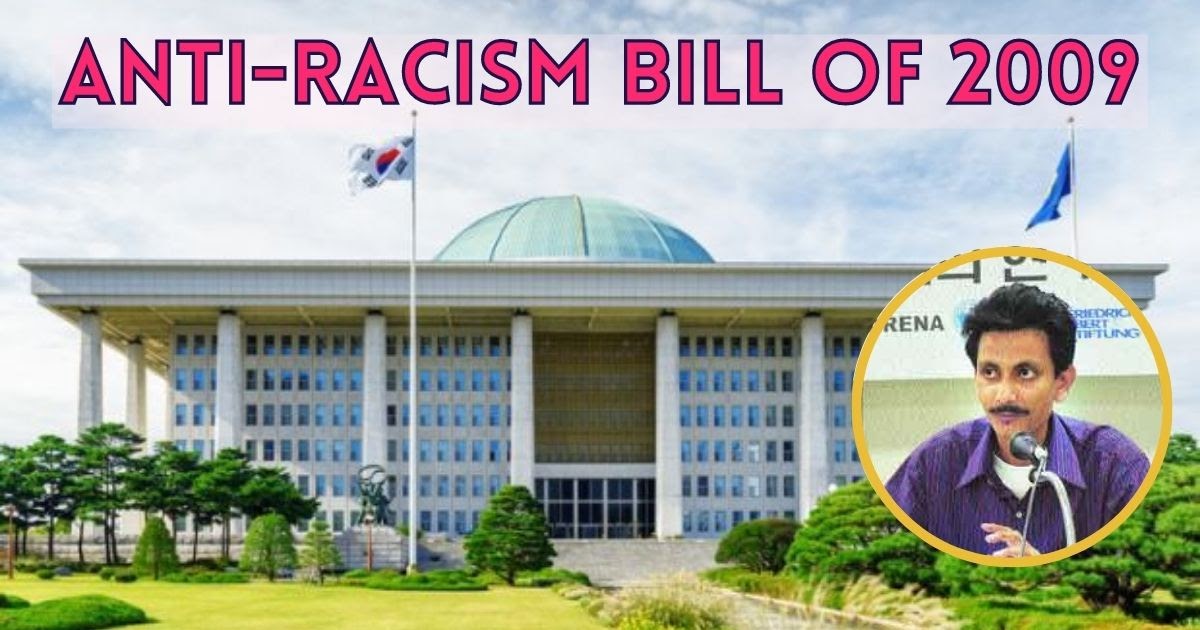Bonojit Hussain he was traveling with his friend Han Ji Sun on a bus on July 10, 2009 in Seoul, when a 41-year-old man To park chang-woo He hurled racial slurs at her. He called Hussain a “dirty son of ab****” and continued to harass her friend, calling her a “Joseon bitch” (a pejorative term Japanese imperial rulers used to refer to Korean women). This incident ultimately became ground zero for one of South Korea’s pioneering anti-racism movements, led by Hussain.
Originally from Guwahati, Assam, Hussain was a researcher at the University of Delhi, working with homeless people in India and studying working-class life. In 2007, he decided to move to Seoul and enroll in the “Racism and Hegemony in Asia” program offered by Sungkonghoe University, where he did his thesis on the Korean labor movement. After he finished his studies, the university offered him a job. During his stay in the country, his goal was to make a comparative study of South Korea, India and another Asian country to know what kind of exchanges took place between the nations and their economies. What he didn’t expect was that it would eventually cause the National Assembly to draft an anti-racism bill in 2009.
On July 10, when Hussain and his friend were mistreated on the bus, he decided to file a complaint with the police. It wasn’t her first encounter with racial abuse in South Korea, but it was the first time she was confident enough to seek help from the authorities because her partner was a Korean woman who was also a victim. from the same attacker.
I always wanted to go to the police… This time there was a Korean with me. She hoped she could take him to the police (as she could translate). The incident itself became very serious.
—Bonojit Hussain
Despite this advantage, Bucheon Jungbu Police Station was reluctant to press charges. According to Han, they made no effort to separate them from the attacker and refused to believe Hussain was a teacher even though he showed officers his ID. Police personnel reportedly assumed he was a working poor and even questioned his immigration status in banmal (less honorific language).
I was deeply disappointed and insulted by the actions of Park and the officers from Bucheon Jungbu Police Station… But at the same time, I felt very embarrassed when I realized that Korean society still had a strong sense of ethnic nationalism, xenophobia and patriarchal social sentiment. system… For now, I have nothing against Park, since Park is just one of many Koreans who treat foreigners this way. However, I would like to take this opportunity and let people know that this can be grounds for punishment.
—Han Ji-sun
The case was quickly picked up by South Korean media, citing the “sensationalism” it offered, according to Hussain. He felt that registering the complaint, despite everything, was necessary to start a full-scale discussion. After all, laws are made on the basis of statistical numbers, and unless victims of racism report crimes, the scale of the problem will not be reflected in the statistics. Even in South Korea, Hussain has regularly worked with migrant workers, who he says bear the brunt of this racial discrimination.
South Korea has 1.1 million migrant workers who do “3D” jobs (dirty, difficult and dangerous) that no Korean would do in this highly educated society. But these workers can only express themselves at the risk of losing their jobs. Most of these workers find themselves in a difficult situation because once they change jobs, they are declared illegal.
—Bonojit Hussain
Hussain acknowledged that it was a privilege to be able to take legal action against his attacker. Still, I was hopeful that this campaign could eventually create the changes needed to help migrant workers escape their grim realities at home.
Since there were no anti-discrimination laws to protect foreigners from racism in South Korea, Hussain’s attacker, Park, was charged with contempt. But the incident prompted a member of the National Assembly to draft an anti-racism bill. The Democratic Party and the National Human Rights Commission invited Hussain to speak at the “public advisory hearing” held at the National Assembly to discuss the bill.
During the hearing, Hussain spoke about his own experience and the basic realities faced by migrant workers, and how this racism also translates into misogyny in South Korean society that affects his own women. She recalls receiving many letters from interracially married Korean women talking about the anger they faced for allegedly diluting the purity of South Korean society.
Although Hussain’s speech was greeted with loud applause and the indictment of his attacker set a legal precedent for racially motivated abuse against foreigners, South Korea does not yet have legislation adequate anti-racism.
